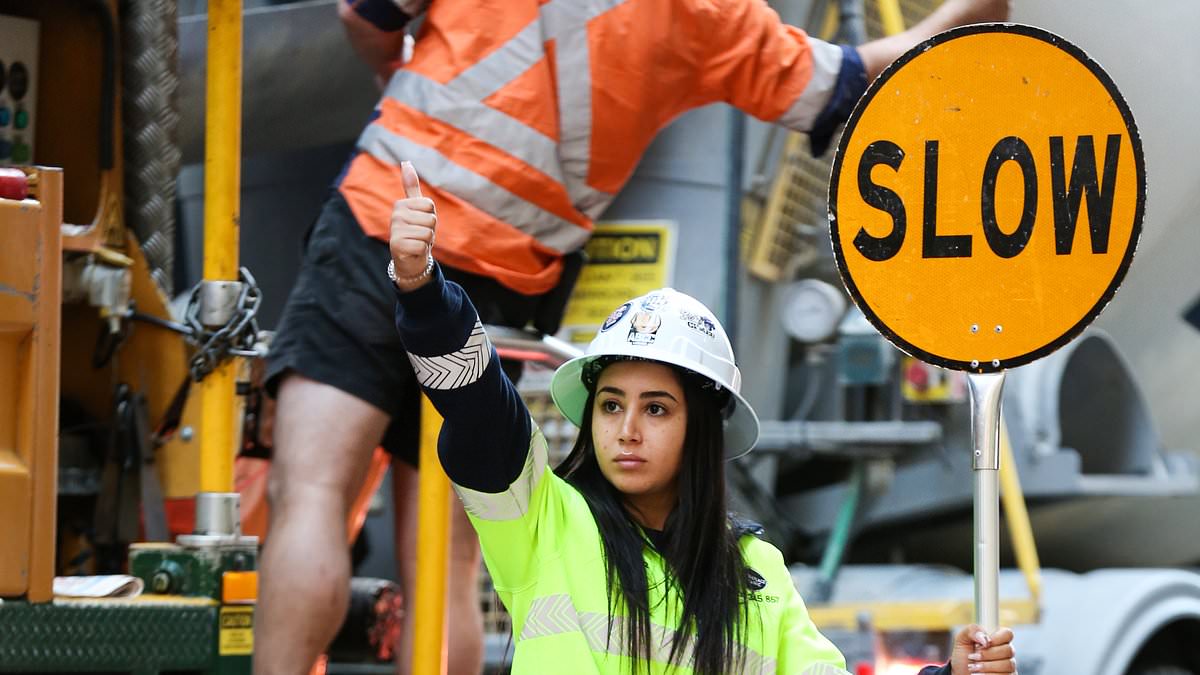
Australia is experiencing a productivity decline, and experts are pointing to near-record levels of low-skilled migration as a major factor. In the past financial year alone, an astounding 457,560 permanent and long-term migrants arrived in the country. Many of these migrants find themselves in low-wage jobs, such as food delivery, which is contributing to a significant productivity challenge across the nation.
Labour Pool Expansion and Automation Setbacks
The influx of low-skilled labour has led businesses to forego investment in technology, according to economist David Llewellyn-Smith. Speaking with Daily Mail Australia, he explained, “Because you’re importing cheap, foreign labour, most of it low-skilled, businesses tend to actually disinvest. They’d have no need to invest in automating processes when cheaper labour is readily available.”
Llewellyn-Smith pointed to examples like the re-emergence of manually run car washes, which had previously been automated. He calls this trend ‘dis-automation’—a regression that epitomizes how Australia’s reliance on low-skilled migration might be holding the economy back.
A Nation Struggling with Productivity Growth
Recent data shows a 1% drop in productivity for the year ending in March. The Reserve Bank of Australia (RBA) has also slashed its growth forecast to just 0.7% per year for the next two years, a significant decline compared to the productivity boom of the 1990s and 2000s that saw annual growth rates of 2.1%.
While innovations like artificial intelligence could potentially mirror the productivity boost of the internet era, the high costs of advanced software and technology have deterred businesses from investing in these tools, according to the RBA’s latest Statement on Monetary Policy.
Impact on Wages and Skills Recognition
Former Treasury secretary Ken Henry has highlighted that poor productivity growth since the 2000s has cost Australian workers an estimated $500,000 in lost pay rises. His successor, Martin Parkinson, has suggested that recognizing the qualifications of migrants with degrees could offer a potential solution. “This is a political and economic no-brainer. Everyone here, citizen or migrant, should have the opportunity to contribute to their maximum ability,” Parkinson stated.
Trade unions, traditionally wary of high immigration levels, are now acknowledging the need for red tape reform around skills recognition. ACTU assistant secretary Liam O’Brien underscored that “cutting unnecessary barriers while maintaining high standards will unlock a better future for all workers in Australia.”
Government and Industry Collaboration for Reform
To address the productivity crisis, Treasurer Jim Chalmers is hosting a three-day Economic Reform Roundtable with business and union leaders. “I’m optimistic that there is ambition to tackle the major challenges in our economy: productivity, economic resilience, and budget sustainability,” Chalmers said.
While solutions won’t emerge overnight, Chalmers expressed hope that the discussions can pave the way for progress. The collaboration marks a significant effort to reverse the ongoing trend of declining productivity and create sustainable growth for the future.
With Australia’s productivity at a crossroads, experts, policymakers, and industry leaders emphasize the need for reform. From technology adoption to skills recognition for migrants, these steps could help the nation navigate the challenges ahead.





